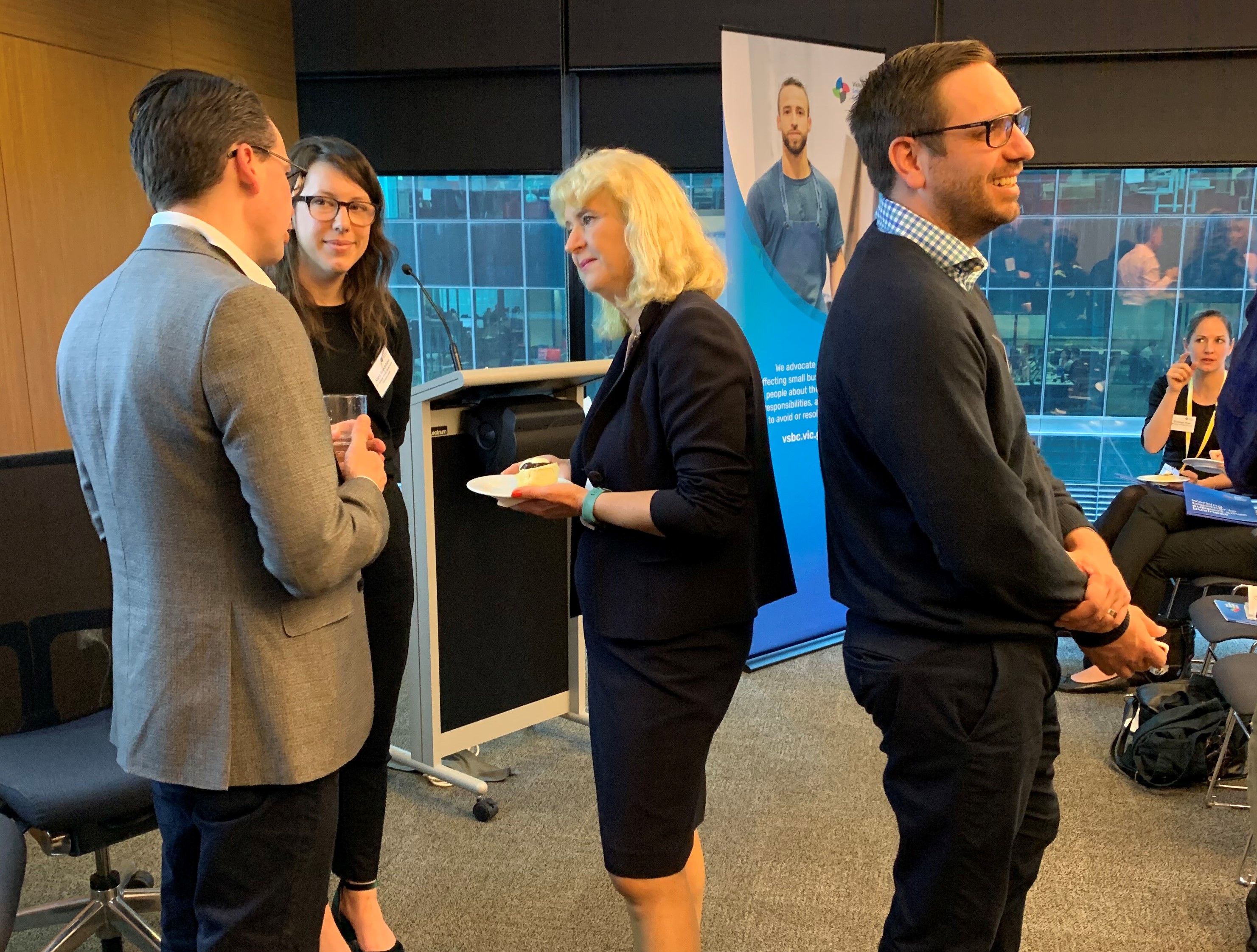Working with small business to manage disruptions to trade

Right across Victoria, there are major infrastructure works happening to meet the changing needs of our expanding population. Put simply, these improvements are important and need to happen. But the disruption they cause can also impact trade, putting a massive strain on small businesses.
This is why we held a workshop for local councils to look at the best approaches – tried and tested – to working with local businesses throughout these projects.
The workshop is the first of a series we’re holding as part of our Small Business Friendly Council initiative. We’re rolling out this initiative to respond to problems we know small business owners are facing, with the aim of making it a lot easier to start and run a business.
City of Wodonga’s Adam Wiseman spoke about how the council supported local businesses throughout the life of the major High Street redevelopment. He spoke about the need to “be agile and flexible in our thinking and honest and clear communicators” and to “celebrate the small wins”. I know first hand the impacts of this project through my visit to Wodonga after the works had started – local shop owners were really hurting.
So how did City of Wodonga respond? They maintained open communication and consultation with the local shop owners. This enabled them to hear and genuinely respond to their concerns with practical measures that worked, including:
- tailoring parking maps for every shop front to make visiting the area easier
- creating signs that reinforced the message ‘detours in place – businesses still open’
- running with a solid social media campaign and engaging community events to bring people to the area and make them want to come back
- encouraging landlords to provide rent relief to affected businesses.
City of Melbourne’s Richard Greig and Jacqui Susan spoke with Rail Projects Victoria’s Barry McGuren on how councils and project managers can work together, drawing on their collaboration on the current CBD rail upgrades. Barry spoke about learning to be “more robust about what you want to do and what you can’t do” from the outset and Jacqui reflected on the non-negotiables – the need to have empathy and be able to build rapport and trust.
Powercor’s Kellie Wilson talked about her team’s project to improve the safety of powerlines in high risk bushfire areas. Instead of a ‘one size fits all’ approach, they tailored the power outages and engagements to best suit the needs of each community and the local businesses that were going to be affected.
Yarra City Council’s Joy Saunders shared her experiences of working with local businesses during the Nicholson Street tram stop works and redevelopment. The council’s waiving of footpath trading fees for 12 months made a big difference, savings traders in the precinct considerable costs. Other measures that proved effective were monthly trader reference group meetings, regular e-bulletins, letterbox drops and face-to-face meetings with small business owners.
The strong theme across all presentations was the indisputable value of keeping communications with businesses consistent and transparent. Doing so conveys information about the project and builds relationships with traders that could help diffuse any tensions that come up down the track.
The workshop was very well received by councils that attended, building on resources we’ve developed to help manage disruption. These include a practical guide to help small business owners plan for and manage disruption, and guidelines for project managers leading infrastructure projects to help make sure they engage with small businesses and consider their needs.
If you’re from a local council in Victoria and don’t want to miss out on our next workshop, contact enquiries@vsbc.vic.gov.au.